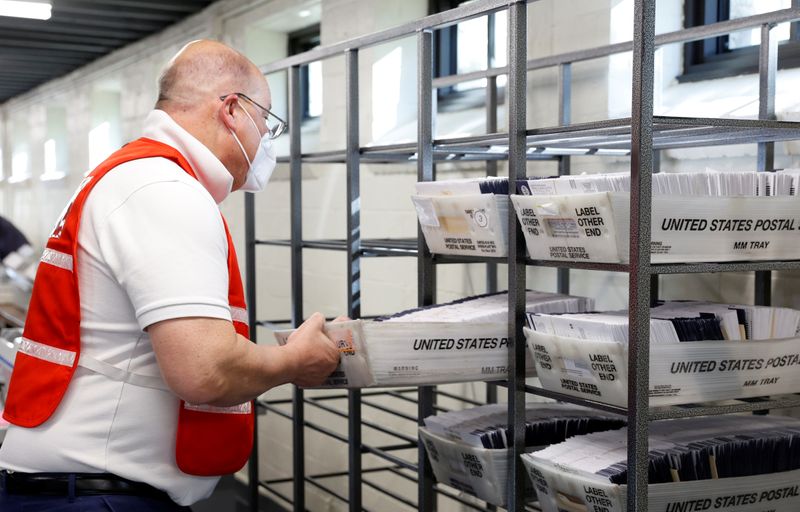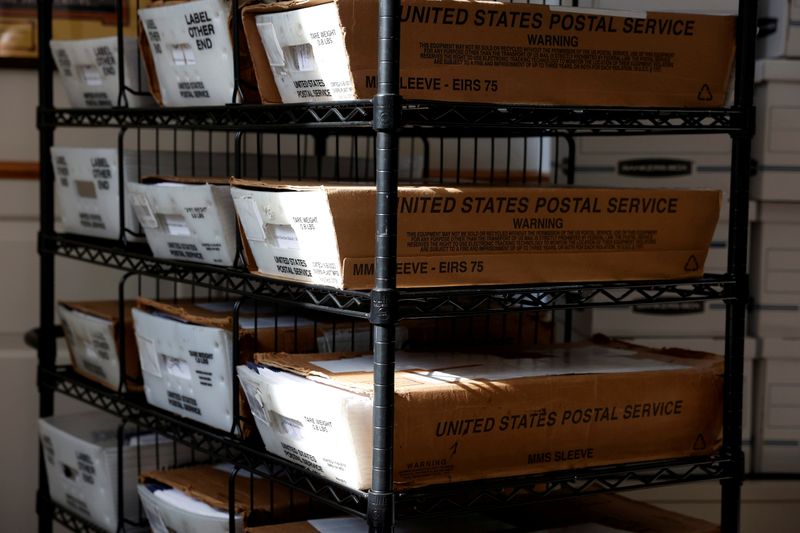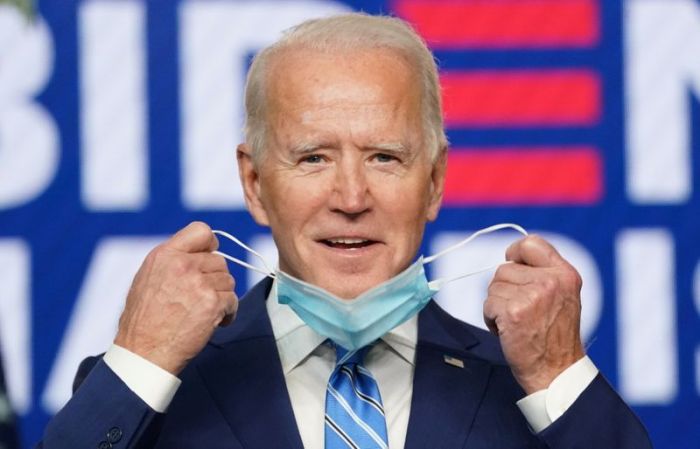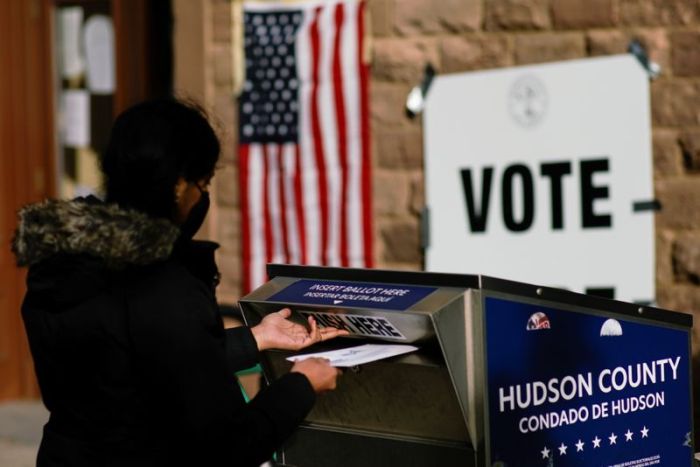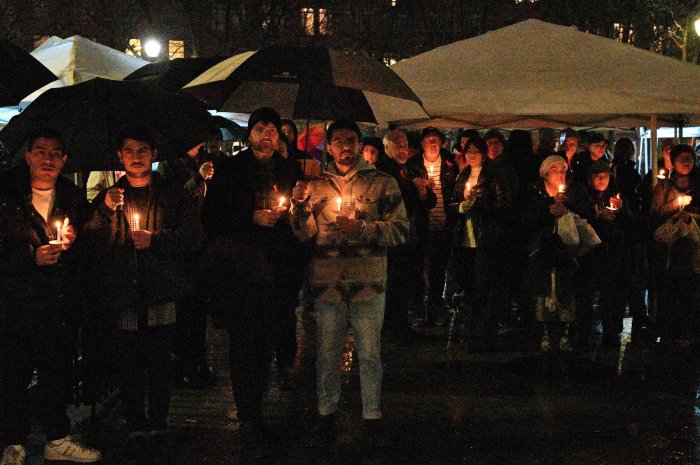(Reuters) – A federal judge in Pennsylvania on Wednesday appeared skeptical of arguments by Republican officials seeking to stop a suburban Philadelphia county from counting mail-in and absentee ballots that voters had been permitted to correct.
U.S. District Judge Timothy Savage in Philadelphia challenged the plaintiffs’ lawyer on whether Montgomery County election officials violated the U.S. Constitution and state law by trying to ensure voters would not be disenfranchised.
“I don’t understand how the integrity of the election was affected. That’s what I’m looking for,” Savage told the lawyer, Thomas Breth, whose clients included Kathy Barnette, a Republican running for Congress.
A decision could have implications for the national presidential race between Republican incumbent Donald Trump and Democratic rival Joe Biden, where Pennsylvania is a battleground.
Trump appeared at the White House early Wednesday to falsely claim victory and make unsubstantiated allegations of electoral fraud.
The lawsuit was filed by Barnette, a conservative political commentator who appears to have lost her race for a U.S. House of Representatives seat to Democratic incumbent Madeleine Dean, and by Clay Breece, who chairs the Republican Committee in Berks County, Pennsylvania.
They accused Montgomery County election officials of having illegally “pre-canvassed” ballots for mistakes and allowing voters to correct them, and sought a temporary restraining order blocking them from being counted.
Such mistakes could include errors in voters’ declarations, or the absence of inner envelopes known as “secrecy envelopes,” the complaint said.
Barnette was running in eastern Pennsylvania’s 4th Congressional District, which includes parts of Montgomery and Berks counties.
Breth likened the case to the 2000 presidential election, when the Supreme Court in Bush v. Gore settle a dispute over vote counting in Florida, enabling Republican George W. Bush to win the race against Democrat Al Gore.
“It pains people to mention Bush-Gore, but that’s the analysis that applies,” Breth said.
“It is creating the same situation that Florida created in 2000,” with “all of these different counties treating ballots in non-uniform manners,” he added. “There’s a solid argument that you’re voting twice.”
Savage challenged the plaintiffs’ equal protection claim, asking why they chose to sue Montgomery County, a Democratic stronghold, rather than the more conservative Berks County.
“You could have sued Berks County and said, ‘You do exactly what Montgomery County is doing,'” Savage said.
Lawyers for county election officials, who drew support from the national Democratic Party, accused the plaintiffs of filing a last-minute lawsuit to undermine voters’ right to vote.
“No one is changing their ballot. No one is voting twice,” the election officials’ lawyer Michele Hangley said.
She added that voters like the plaintiffs “don’t have a free-floating right to police other people’s votes.”
Montgomery County’s election clerk testified that 93 ballots had defects that needed to be changed, and the total number of potentially defective ballots had reached about 2,700 by Sunday.
Both sides are expected to make additional court filings by Friday. Savage was appointed to the bench by Bush in 2002.
The case is Barnette et al v Lawrence et al, U.S. District Court, Eastern District of Pennsylvania, No. 20-05477.
(Reporting by Jonathan Stempel in New York and Tom Hals in Wilmington, Delaware; Editing by Alistair Bell and Jonathan Oatis)

